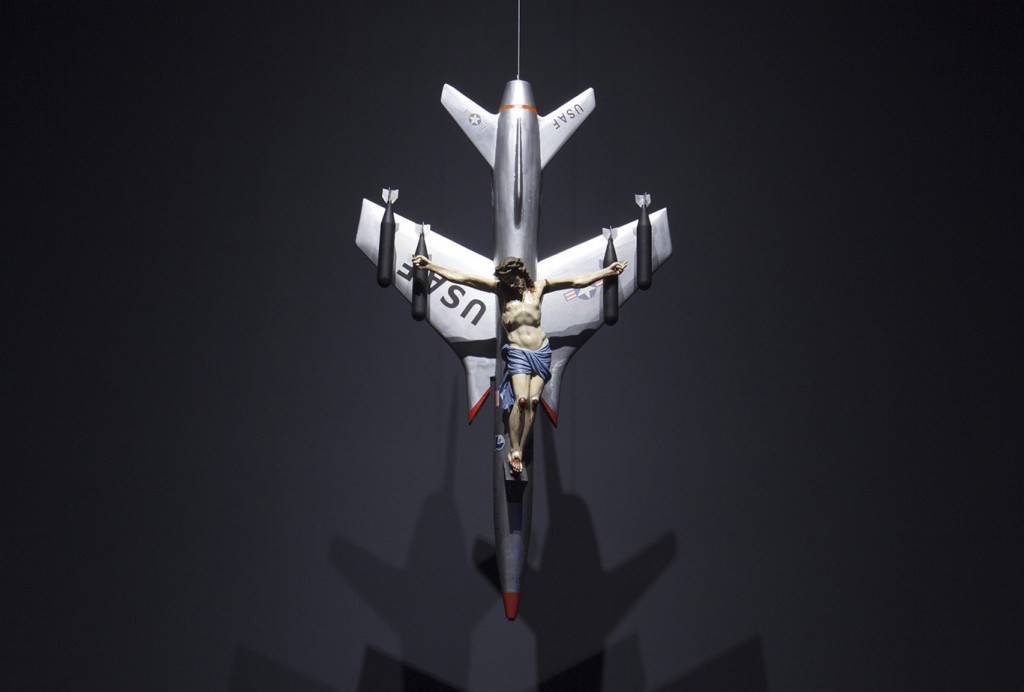
León Ferrari’s La Civilización Occidental y Cristiana (Western Christian Civilization), 1965. Photo courtesy Walker Art Center
León Ferrari’s La Civilización Occidental y Cristiana, a six-foot sculpture depicting Christ crucified on a US war plane, “marks a moment in which pop art is radicalized in Argentina—all in the months before the first of two oppressive military regimes takes over the country,” writes Carolina Miranda. Part of the Walker’s International Pop show, the work was criticized when it was shown as part of a 2004 retrospective of Ferrari’s work in Buenos Aires: Archbishop Jorge Mario Bergoglio—now known as Pope Francis—described the Vietnam-era protest work as “blasphemy” and “an embarrassment.”
- “Every time you connect to the internet, you pass through time, space, and law.” A browser plug-in that reveals the locale of the websites you visit, James Bridle’s Citizen Ex offers a glance of how our web usage is viewed—and possibly governed—by companies and nations.
- Protests by MoMA employees over proposed benefit cuts raise questions “in the debate over what, and how, a museum should be,” writes CityLab’s Laura Bliss: “In the balance between pleasing donors and serving the public, where do employees hang?” Meanwhile, as negotiations continue, the UAW Local 2110, the union representing the museum’s 280-member professional staff, has launched the #WeAreMoMA social media campaign to highlight those who’d be affected by cutbacks, from photographers and librarians to curatorial assistants and editors.
- Philippe Parreno isn’t the kind of artist to merely hang art on a wall, writes Randy Kennedy. “He wants to take down the wall and put up his own wall.” His Park Avenue Armory show will use every part of the building, challenging the very notion of what an exhibition can be.
- “It’s too early in the fight for inclusion to give up on the museum,” writes Darby English, director of the Clark Art Institute’s Research and Academic Program. “The way to erase erasure is by active presence, by acting on one’s interest by seizing a place and, when necessary, making oneself felt.”
- Tate’s Nicholas Serota, Queens Museum director Laura Raicovich, and M+ curator Doryun Chong are among 60 art-world leaders who’ve written to developers of Saadiyat Island museums decrying treatment of Gulf Labor activists recently barred from entering the United Arab Emirates: “We state that denying artists visas, stopping and deporting them after years of their work in the region, creates a chilling precedent and makes it difficult for arts and academic institutions in the UAE, and those working with the UAE to claim regional dialogue and artistic freedom.”
Follow Art News From Elsewhere on the Walker Art Center homepage or via @walkermag, the Walker’s editorial-focused Twitter feed.



